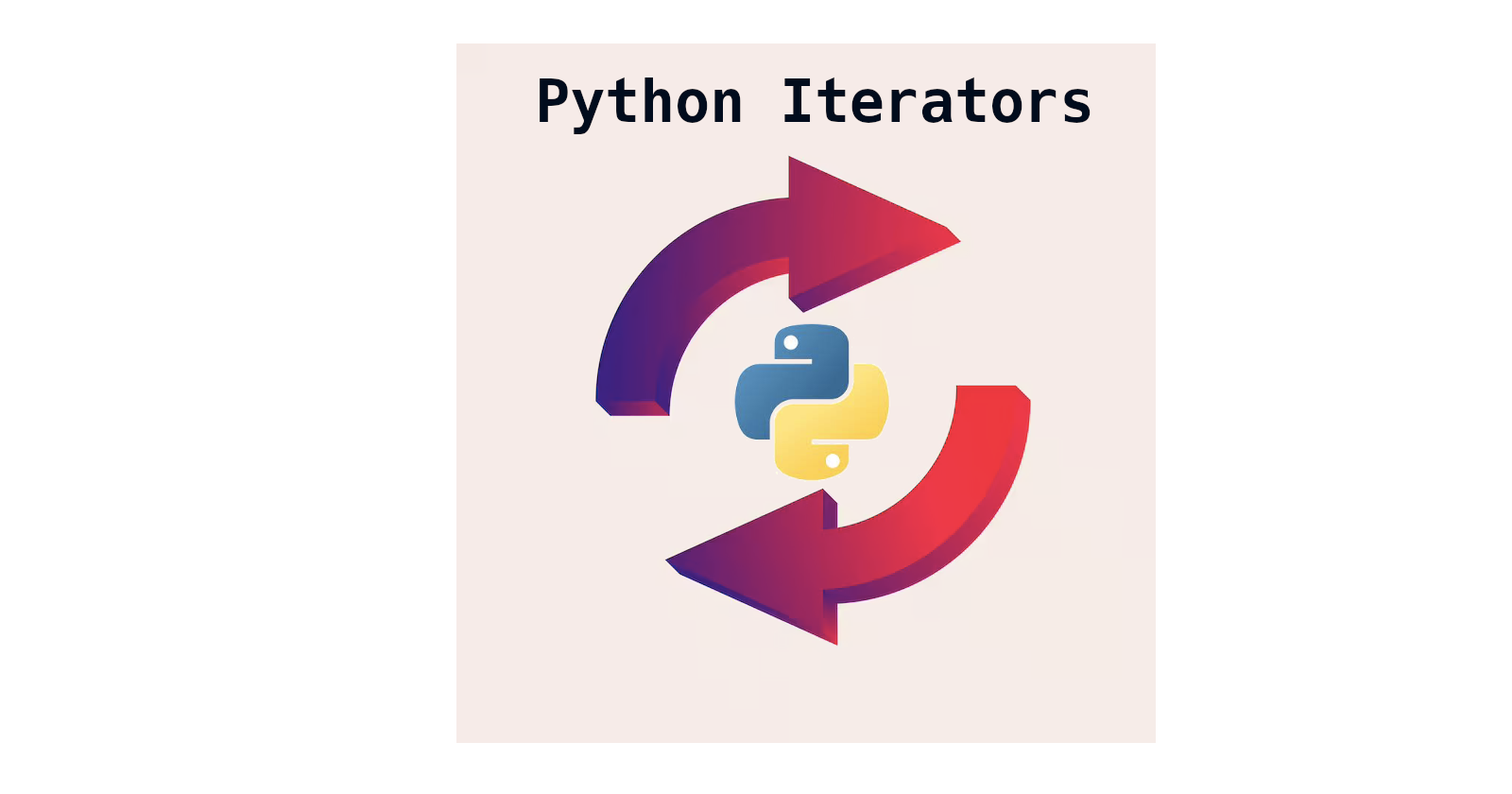Unlocking Python's Hidden Gems: A Journey Through Iterators
 Nikhil Akki
Nikhil AkkiTable of contents

Introduction
In Python, iterators are a fundamental concept that allows you to traverse through collections of data, such as lists, tuples, and dictionaries. They provide a way to access each element in a sequence one at a time, making it easier to process and manipulate data. Understanding iterators is crucial for any Python developer, especially if you're interested in software development and backend systems.
Simpler explanation
Imagine iterators as a virtual conveyor belt that carries items (elements) from a collection (like a shopping cart) to you, one item at a time. You don't need to see the entire collection at once; you can focus on one item, process it, and then move to the next. Python uses special methods like __iter__() and __next__() to create and control iterators. This "one-at-a-time" approach is memory-efficient and enables you to work with large datasets without loading everything into memory.
Example Code
Enumerating a List: You can use the
enumerate()function to create an iterator that yields both the index and the value from a list.my_list = ['apple', 'banana', 'cherry'] for index, value in enumerate(my_list): print(f"Index {index}: {value}")Iterating Over Dictionary Keys and Values: You can create iterators for dictionary keys, values, or key-value pairs.
my_dict = {'name': 'Alice', 'age': 30, 'city': 'Mumbai'} # Iterating over keys for key in my_dict.keys(): print(key) # Iterating over values for value in my_dict.values(): print(value) # Iterating over key-value pairs for key, value in my_dict.items(): print(f"{key}: {value}")Infinite Sequence: You can create an iterator for an infinite sequence, like counting numbers.
import itertools count_iterator = itertools.count(start=1, step=2) # Odd numbers starting from 1 for _ in range(5): print(next(count_iterator))File Reading with Iterators: Reading a large file line by line using an iterator.
with open('large_file.txt', 'r') as file: for line in file: # Process each lineCustom Iterator Class: Creating a custom iterator class for a range of numbers.
class MyRange: def __init__(self, start, end): self.current = start self.end = end def __iter__(self): return self def __next__(self): if self.current >= self.end: raise StopIteration else: self.current += 1 return self.current - 1 for num in MyRange(1, 5): print(num)Iterating Through a List in Reverse: Using the
reversed()function to create a reverse iterator for a list.my_list = [1, 2, 3, 4, 5] for item in reversed(my_list): print(item)
These examples showcase the versatility and usefulness of iterators in Python across various scenarios and data types. They allow you to process data in a more efficient and organized manner, making your code cleaner and more readable.
Use Cases
Looping through Databases: Iterators are used to efficiently process large database query results row by row.
File Processing: When reading large files, iterators help read and process data line by line, reducing memory usage.
Generating Infinite Sequences: You can create iterators for infinite sequences, like Fibonacci numbers, on the fly.
Custom Data Structures: Implement custom classes with iterator methods to enable iteration through your objects.
Stream Processing: In AI and DevOps, iterators can process data streams as they arrive, facilitating real-time analysis.
Lazy Evaluation: Use iterators for lazy evaluation of data, where elements are computed only when needed.
Parallel Processing: In cloud backend systems, iterators can be used for parallel data processing tasks.
Data Transformation: Apply transformations to elements in an iterator, like mapping or filtering.
Asynchronous Programming: In modern Python, iterators are part of asynchronous programming paradigms for handling concurrent tasks.
Testing and Debugging: Iterators simplify testing by allowing controlled iteration through specific scenarios or data subsets.
Conclusion
Iterators are essential tools in Python for efficient, memory-conscious, and flexible data processing. Whether you're working with databases, files, custom data structures, or real-time data streams, understanding and utilizing iterators will significantly enhance your capabilities as a software developer.
Subscribe to my newsletter
Read articles from Nikhil Akki directly inside your inbox. Subscribe to the newsletter, and don't miss out.
Written by

Nikhil Akki
Nikhil Akki
I am a Full Stack Solution Architect at Deloitte LLP. I help build production grade web applications on major public clouds - AWS, GCP and Azure.